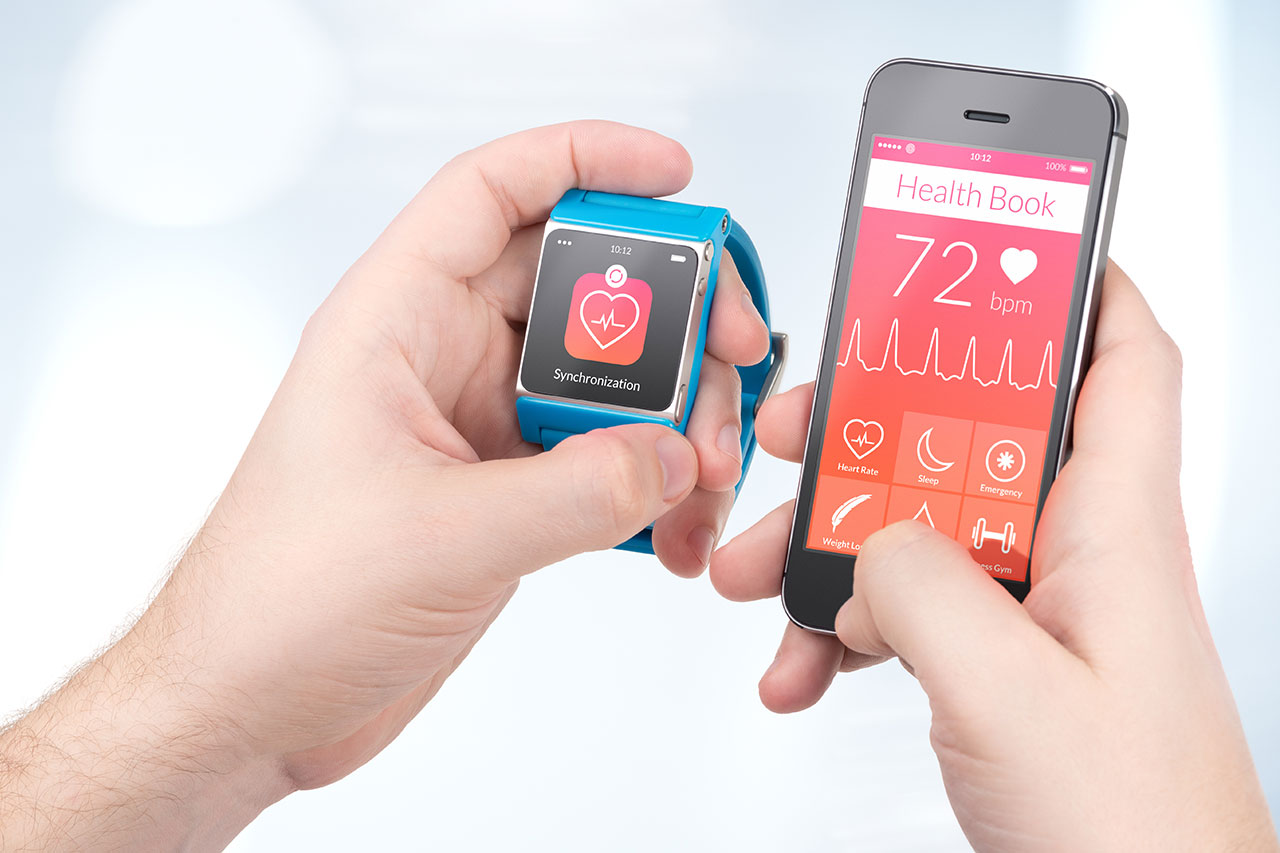Digital Health Chronicles : « Halo, am I stressed? », Amazon’s entrance into digital health

Despite the troubled global health situation, 2020 is a busy year for digital health worldwide. Alcimed highlights in these chronicles major events that are going to shape the digital health efforts for the coming years.
August 27, 2020: Amazon announces it enters the wearables market with a wristband device – named Halo – that can track sleep, judge emotion in voices and scan body to calculate body fat. This news sounds like an earthquake in this market, as Halo will directly compete with the Apple Watch and Fitbit, the two tremendous GAFA leaders on the market. Also, the news was kept secret in Amazon Seattle headquarters without any leaks, which added weight to the announcement.
It is Amazon’s first significant move into wearables, which Gartner estimates will be a $52 billion market this year. Amazon is entering an already crowded market but signals here a major move in the area. What is Halo and its business model? What are the chances to be a success? And what will be the impact for e-health?
What is Halo?
With Halo, Amazon goes a step further in the field of artificial intelligence. The giant e-commerce and technological company is now commercializing a wristband able to measure and track physical and emotional activities. In addition to measuring movement, heart rate and sleep patterns, Halo will also measure body fat, which is normally done with more sophisticated medical tools. The microphones are built in to analyze voice tone, enabled by machine learning.
The wristband has a simple design, screenless, with LED lights and two microphones. It offers plenty of possibilities to the users such as the possibility to track sedentary time, see themselves at different body fat percentages with a personalized 3D model or use the tone function allowing vocal recordings to analyze the user’s voice.
The Halo wristband is combined with an app, branded with the same name. Initial membership users will be able to buy a single band plus a six-month subscription for an upfront price of $64.99 during an early access period, which will eventually go up to $99.99. After the first six months, users will have to pay $3.99 a month to keep the service going. This subscription model is new in this area and quite audacious from Amazon who will compete against one-time purchasing models, but Amazon keeps its identity as it already proposes subscription models with Amazon Prime & Co.
Amazon surfing on the wearables trend wave to enter the healthcare sector
This launch marks the online retail giant’s biggest push into health yet, coming after the firm launched a virtual health clinic for employees. The launch is coming as tech giants are diving more deeply into health. Amazon is joining a very crowded space, competing with the other giants GAFAM such as Apple and Google (which acquired the digital health firm Fitbit in 2019) and many others like Garmin or Samsung. Apple is currently said to be the leader when it comes to wearable technology.
Nevertheless, Amazon is embracing a different innovative approach than these companies:
Rather than focusing on the device itself, Amazon is positioning Halo as a comprehensive digital health service that leverages both phones and wristband. Amazon is going beyond basic fitness, activity, and sleep tracking, although its service does offer those measurements as well. First layers of interoperability have been thought of, notably connectivity with Cerner’s computerized patients’ file. Still, Amazon bets on the respect of the consumers’ privacy by avoiding inopportune notifications and allowing the erasure of photos which are present on the cloud.
Amazon bets on a rich network of partners such as the American Heart Association, Weight Watchers, Headspace, the Mayo Clinic and more.
Users who have a specific goal in mind can sign up to a challenge for a set period and Amazon will include them in specific personal challenges called “labs”. These labs are science-backed challenges, experiments and workouts to build healthier habits (cutting out afternoon caffeine for instance).
What is the impact of Amazon’s arrival on the digital health sector?
Big tech companies have been present on stage for many years now in drug discovery (Google Deepmind), in health insurance (Amazon Haven), in wearables (Apple Watch, Google Fitbit).
Although present in healthcare with Haven or Pillpack, Amazon had no presence in the e-health market five years ago. Today, Amazon is investing more and more seriously in the game to capture a part of the $3.5 trillion healthcare sector. If Amazon succeeds in building trust among users with the necessary privacy, it could unlock massive new revenue streams while improving people’s health care over time.
This shows the growing trend in digital health over the years. Big tech companies have been present on stage for many years now in drug discovery (Google Deepmind), in health insurance (Amazon Haven), in wearables (Apple Watch, Google Fitbit). While these big tech companies are acting as top-level integrators of digital services, they should not be perceived as direct competitors for pure healthcare players in an ever-more digital world.
The launch of Halo will be one of Amazon’s most significant moves into wearables, estimated at $52 billion this year. More innovations could be expected from the top competitors Apple and Google to counter this announcement. Still Amazon now has quite a unique positioning as a global digital service provider. Already a giant marketplace and a disruptive content producer with Amazon Prime, Amazon is now tracking people’s stress and anxiety to improve general population’s health.
In a few years, we may not even have to ask Alexa for renewing prescriptions on your Amazon prime account, it will suggest it based on our blood pressure from the last 12 hours, measured by Halo and stored on Amazon Web Services platform.
About the author
Benjamin, Great Explorer Digital Health in Alcimed’s Healthcare team in France
Do you have an exploration project?
Our explorers are ready to discuss it with you